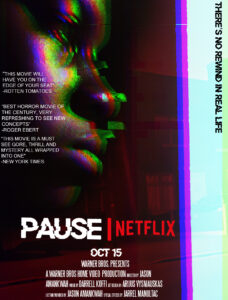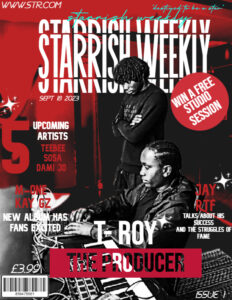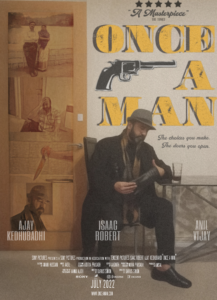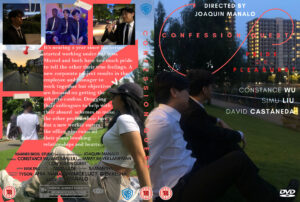Jobs in the media range from Film Production to Computer Games Designer, from Radio or TV Journalist to Social Media Manager, from Production Runner to Scriptwriter and from Graphic Designer to Camera Operator and many more.
Media Studies students tend to be bright, engaged, vibrant, creative individuals who want to study an academic and creative subject that opens up a world of possibilities. Our curriculum aims to give students an understanding of how media impacts wider society, the wide variety of the media industry and to combine an enjoyment of media with a critic of the processes.
Students develop wide ranging, transferable skills that will help with understanding, research skills, skills of textual analysis, creative and IT skills, teamwork skills and the ability to work to a deadline.
KS3
Media is not taught as a core subject from Year 7-9; however it will be a tool that factors into many of your sons’ lessons. In order to reflect the fast paced- changing world of communication around us, students will be expected to develop and make use of a variety of different ICT tools, from researching using the internet, creating short films, blogging and other interactive and creative ways of learning.
GCSE Media Studies
Eduqas GCSE Media Studies Specification
GCSE Media Studies is a dynamic, broad ranging subject that challenges students in terms of their understanding of research, planning, theoretical analysis and creativity but also is a thoroughly stimulating subject to teach and to study.
The media changes all the time and as a result, the subject never stands still – the digital revolution underpins areas of study we teach and as a result, students become familiar with industry standard software like Adobe Photoshop and are able to produce inspired, creative productions e.g. an advertising campaign for a new brand of fashion clothing. They will also begin to understand viral advertising, the ‘blogosphere’ environment and what Web 2.0 and ultimately Web 3.0 has and will mean for audiences and media consumption.
The subject has a slightly higher weighting for exam content with 70% of the grade comes from two exams and 30% coming from a controlled coursework assessment. While the exam has a higher weighting a strong piece of coursework can make grades of difference.
Studying specific topics allows students to become familiar with media industries in terms of production, distribution and exhibition and allows them to see exactly just how things ‘tick’ in the murky world of the media.
It is hoped, and indeed expected that GCSE Media Studies students will progress onto the challenging and diverse A Level course. This then allows them to see the vast array of careers and university courses available to students of the Media.
Media Studies GCSE – The Facts:
Exam board: WJEC Eduqas GCSE (9-1)
Exam Component 1: 40%
Exam Component 2: 30%
Non Exam Controlled Assessment: 30%
Exam Component 1 topic (40%): Exploring the Media
Media Forms and Set Texts
- Media Forms and Set Texts
- Magazines: Vogue and GQ
- Marketing: The Man with the Golden Gun and No Time to Die
- Newspapers: The Sun and The Guardian
- Print Advertisements: Quality Street and This Girl Can (Changing to NHS 111 in 2025 /2026)
- Radio: The Archers (Changing to Desert Island Discs in 2025 /2026)
- Video Games: Fortnite
- Film Industry: No Time to Die
Exam Component 2 topic (30%): Understanding Media Forms and Products
Media Forms and Set Texts
- Television Crime Drama: Luther (changing to Trigger Point, Series 2, Episode 1 in 2025/2026)
- Music Video and Online Media: The Man by Taylor Swift and Superheroes by Stormzy and Waterfalls by TLC
Non-Exam Component 3 (30%):
A new brief is provided for every assessment period where the students will create their own media product using the knowledge they learn over the course; the media forms they can create vary from Magazines, TV Openings, Music Videos, Marketing Campaigns and Online Content.
How you can support your son:
– Ensure that they complete all their homework on time
– Encourage them to proofread their work before handing it in
– Make sure that all assignments are fully referenced so any books/texts/websites are referred to at the end of an assignment
– Raise awareness of current affairs through discussion, watching the news etc.
– Make sure they are accessing I.C.T. at school or home and are managing their time
A Level Media Studies
Eduqas A-Level Media Studies Specification
A Level Media Studies is a two year course. The exam component is worth 70% and the non exam assessment is worth 30% meaning that students still have control over a good chunk of their grade before going into the exam. We spread the learning of the course across the two years, students are introduced to a wide range of media forms from film, television and computer games to viral advertising, music industry websites, music videos, magazines and newspapers and how they communicate with audiences. A study of Web 2.0 and 3.0 and the ‘blogosphere’ environment will put students in touch with ever changing digital media.
Practical production is an integral part of Media Studies and students will learn the mechanics of producing and editing their own work and understanding industry standard software Adobe Photoshop and Premiere Pro. Coupled with this at students’ creative skills will be complimented by a study of media industries making that essential connection between theory and practice.
Media and its many modes of communication play a fundamental role in shaping our understanding of the world around us. It is therefore extremely important to know about how it is constructed and by whom? For example, learning about the Leveson Inquiry that is uncovering serious, criminal activity involving the Press, Rupert Murdoch and one of the biggest Media Conglomerates in the world, the News Corporation (owners of 20th Century Fox Hollywood Film Studios, BSkyB, The Sun, the Times, Fox TV etc.). Also involved in this wide ranging investigation of the media are Politicians, The Police, Donald Trump, Theresa May and Brexit – just like the News of the World, other heads may still roll.
Studying specific topics allows students to become familiar with production, distribution and exhibition and enables students to understand and begin to access the fascinating world of the Media and all it encompasses.
Media Studies A Level – The Facts:
Exam board: WJEC Eduqas GCE
Exam Component 1: 35%
Exam Component 2: 35%
Non Exam Controlled Assessment: 30%
Subject content:
Exam Component 1 topic (35%): Media Products, Industries and Audiences
Media Forms and Set Texts
- Media Forms and Set Texts
- Advertising and Marketing: Tide Advertisement , Kiss of the Vampire Film Poster and Tokyo Paralympics Advert
- Newspapers: Daily Mirror and The Times
- Radio: Have You Heard George’s Podcast
- Video Games: Assassin’s Creed Franchise
- Film Industry: Black Panther with I, Daniel Blake
- Music Video: Formation by Beyonce and Riptide by Vance Joy
Exam Component 2 topic (35%): Media Forms and Products in Depth
Media Forms and Set Texts
- Television : Peaky Blinders (English Language) (Season 1: Episode 1) and The Bridge (Foreign Language: Swedish/Danish) (Season 3: Episode 1)
- Online Media: Zoella and Attitude Magazine
- Magazines: Woman’s Realm and Huck
Non Exam Component 3 (30%):
A new brief is provided for every assessment period where the students will create their own media products from two media forms using the knowledge they learn over the course; they can create vary from Magazines, TV Openings, Music Videos, Marketing Campaigns and Online Content.
Film Research Sources




OCR Creative iMedia Specification
Unit 1: Creative iMedia in the media industry (Exam – 40%)
You will learn about the media industry, digital products, how they are planned, codes used to create meaning, impact and engage with audiences.
Unit 2: Visual Identity and digital graphics (Set Assignment – 30%)
You will learn how to develop visual identities for clients and use concepts of graphic design to create digital graphics to engage target audiences.
Optional Unit (Set Assignment chosen by teacher – 30%)
You will learn how to plan, create and review your chosen media form
The unit options are:
-
Characters and Comics
-
Animation and Audio
-
Interactive Digital Media
-
Visual Imaging
-
Digital Gaming
The Creative iMedia course will open a variety of pathways for you; the study of A Level Media, Apprenticeships in media and Broadcast Assistant Pathways, Digital Media or Information Technology Level 3 or T Levels such as Digital Production, Design and Development or Media, Broadcast and Production.

